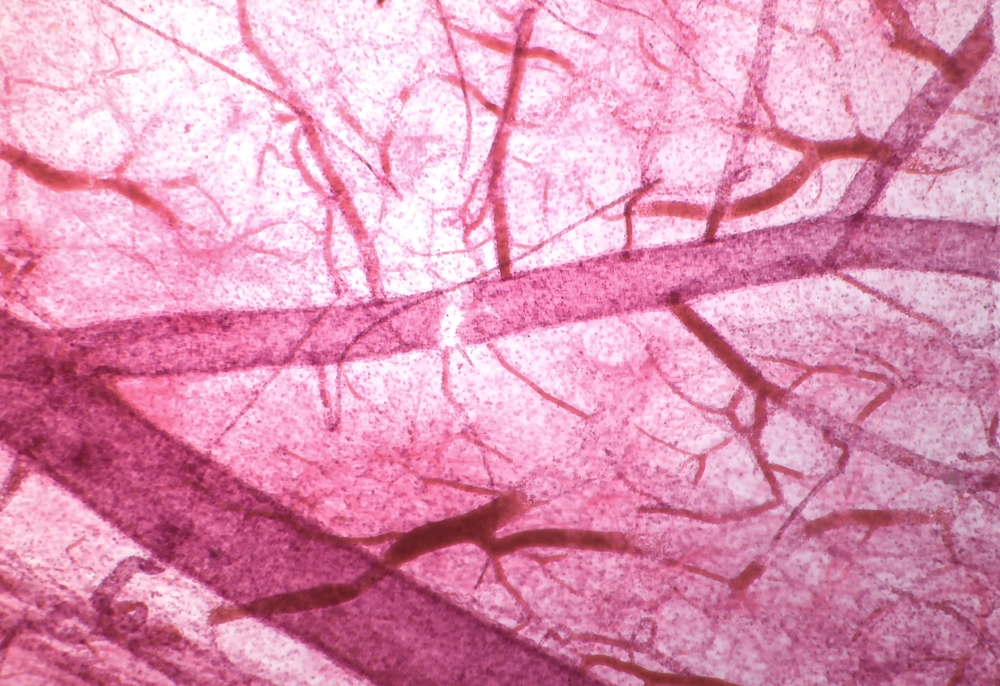Understanding how heart health and vein health are connected is crucial for overall cardiovascular wellness. In fact, healthy veins aid your heart’s function, preventing serious conditions. This article shows you the link between veins and the heart and offers tips to keep both in good shape.
Main Heart and Vein Points
- Heart and vein health are interconnected, with vein conditions like varicose veins potentially increasing the risk of cardiovascular diseases.
- Maintaining good circulation through regular exercise, a healthy diet, and hydration is crucial for both heart and vein health.
- Recognizing symptoms of vein issues early and seeking medical advice can prevent serious complications related to heart health.

Understanding the Connection Between Heart and Vein Health
The heart and veins are fundamental components of the circulatory system, working in harmony to transport blood throughout the body. The heart pumps oxygen-rich blood through arteries to deliver essential oxygen and nutrients to tissues and organs. Once these nutrients are delivered, veins carry the oxygen-poor blood back to the heart, where it is re-oxygenated in the lungs. This continuous cycle is vital for maintaining our body’s homeostasis and ensuring all organs function optimally.
The heart and veins are interconnected, with each relying on the other to sustain blood flow and circulation. The heart’s pumping action creates the pressure necessary for blood to travel through the vast network of blood vessels, including arteries, veins, and smaller vessels. Veins, equipped with valves, ensure that blood flows in the right direction, preventing backflow and pooling, which can lead to conditions such as varicose veins.
However, this delicate balance can be disrupted by various factors. Conditions such as varicose veins, resulting from valve dysfunction, are more than just a cosmetic concern. They can impair blood flow, leading to increased pressure on the heart as it works harder to pump blood efficiently. Additionally, chronic venous insufficiency can exacerbate cardiovascular strain, potentially leading to heart-related issues such as congestive heart failure. Therefore, maintaining the health of both the heart and veins is crucial for preventing complications and promoting overall cardiovascular wellness.

Maintaining Healthy Blood Flow
Effective circulation ensures that organs receive adequate blood and oxygen supply, which is vital for their proper functioning. As a result, poor circulation can lead to serious health issues. Conditions such as peripheral artery disease, obesity, and high blood pressure can impair blood flow. Smoking is another significant factor that damages blood vessels and promotes plaque buildup, further hindering circulation.
A healthy lifestyle, including regular exercise and avoiding smoking, is crucial for keeping blood flowing smoothly and ensuring blood vessels healthy overall health.
Common Vein Issues and Their Impact on Heart Health
Vein problems can significantly affect heart health by disrupting blood circulation and increasing the risk of cardiovascular diseases. Chronic venous insufficiency (CVI), for example, can lead to complications like varicose veins and venous ulcers, which affect overall circulation. While CVI is distinct from cardiovascular disease, its impact on circulation can indirectly strain the heart.
Weak valves in the veins can cause blood to pool, leading to varicose veins and potentially more serious conditions. Furthermore, blood clots, particularly in deep veins, can pose severe risks if they travel to the lungs, potentially causing a pulmonary embolism.
Recognizing these common vein issues and their potential impact on heart health is crucial for prevention and early intervention.
Varicose Veins
Varicose veins result from valve dysfunction and can cause blood pooling, leading to visible bulging and discomfort. These veins often appear twisted, and are dark purple or blue. Factors such as prolonged standing, pregnancy, and genetic predisposition can contribute to their development.
Individuals with varicose veins might experience an achy or heavy sensation in their legs, which can intensify after prolonged sitting or standing. Itching and changes in skin color around the veins can also indicate worsening vein health.
If varicose veins cause severe discomfort or bleeding, seeking medical advice is necessary.
Deep Veins and Blood Clots
Deep vein thrombosis (DVT) occurs when a blood clot forms in the deep veins, usually of the legs. This condition can lead to severe complications if left untreated. If a DVT clot dislodges, it can travel to the lungs, causing a life-threatening condition known as pulmonary embolism.
Blood clots in deep veins can also affect heart function by disrupting normal blood flow. Early detection and treatment of DVT are crucial to prevent these serious complications and ensure that blood continues to flow smoothly through the veins.
Pulmonary Veins and Oxygen Poor Blood
Pulmonary veins transport oxygen-poor blood from the body back to the heart, allowing for reoxygenation in the lungs. This process is crucial for maintaining blood flow and ensuring that carbon dioxide is effectively exchanged for oxygen in the lungs.
Compromised function of the pulmonary veins can lead to heart strain, as the heart must work harder to process the returning oxygen-poor blood. This added strain can significantly impact heart health over time, necessitating regular monitoring and maintenance of pulmonary vein health.

Tips for Keeping Your Veins Healthy
Maintaining vein health is crucial for overall circulatory health. Here are a few tips to help you keep your veins healthy:
- Staying well-hydrated prevents blood thickening and promotes better circulation.
- Using compression socks can enhance blood flow by applying pressure to the lower extremities, especially during long periods of sitting or standing.
- Elevating your legs helps facilitate blood return to the heart and reduces swelling, particularly beneficial for those who sit or stand for long durations.
Incorporating these habits into your daily routine can significantly improve vein health and prevent common vein issues. Now let’s go more in depth on ways to keep your vein and your heart healthy.
The Importance of Regular Exercise
Regular exercise is vital for maintaining and improving heart and vein health. Engaging in cardiovascular activities, like running or walking, can significantly enhance blood flow. Regular walking, being a low-impact exercise, helps prevent conditions such as varicose veins while improving circulation.
Aerobic exercises, such as walking and swimming, improve blood circulation by increasing blood flow through arteries. These activities not only benefit vein health but also contribute to overall cardiovascular well-being, making exercise an indispensable part of a healthy lifestyle.

Diet and Nutrition for Vein Health
A healthy diet plays a crucial role in maintaining vein health. Nutrients such as fiber, vitamins C and K, and antioxidants like rutin support vein health and help maintain proper blood flow. Fatty fish, rich in omega-3 fatty acids, improve circulation and endothelial function.
As mentioned earlier, staying hydrated is also crucial for healthy circulation, as it helps blood easily transport nutrients and oxygen in the bloodstream. Incorporating foods like garlic, nuts, seeds, ginger, and turmeric into your diet can further enhance blood flow and reduce inflammation, contributing to overall vascular health.
Recognizing Symptoms of Vein Problems
Identifying symptoms of vein problems early can prevent serious complications. Common symptoms include swelling, pain, varicose veins, and cramping. If you notice these symptoms, it is important to seek medical advice promptly to prevent the worsening of vein problems.
Being proactive about monitoring your vein health can improve your chances of recovering from any complications. Regularly checking for symptoms and consulting with a healthcare professional when needed can help maintain healthy veins and prevent serious health issues.
When to See a Doctor
Consulting a vein specialist is crucial for early detection and management of vein-related issues. Persistent leg pain or swelling may indicate a blood clot, and seeking medical attention if these symptoms occur is important.
Discolored spots or ulcers developing near varicose veins are also signs that warrant a visit to a healthcare professional. Early intervention can prevent severe complications and ensure that vein and heart health are maintained.

Regular Check-Ups for High-Risk Individuals
For individuals at higher risk of vein problems, regular check-ups with a healthcare professional are crucial. These check-ups help in early detection and management of potential vein issues, reducing the risk of complications that may affect heart health. Monitoring vein health regularly ensures that any developing conditions are addressed promptly, maintaining optimal blood circulation and overall cardiovascular wellness.
Who is at Higher Risk for Vein Problems?
- Individuals with a family history of vein issues
- Pregnant women, due to increased pressure on veins
- People who are overweight or obese
- Those who have jobs requiring prolonged standing or sitting
- Individuals with a sedentary lifestyle
- Older adults, as vein elasticity decreases with age
- Smokers, due to the negative impact of smoking on blood vessels
By understanding these risk factors and seeking regular medical advice, those at higher risk can take proactive steps to maintain their vein health and prevent complications.
See a Vein Doctor in Nashville, TN
If you’re experiencing symptoms of vein issues or have concerns about your vein health, it’s important to seek professional advice. Consider scheduling a consultation with the experts at the Vein Centre in Nashville, TN. Their experienced team can provide you with personalized care and effective treatment options to ensure your veins and heart remain healthy. Don’t wait—take the first step towards better vein health today!
Summary
In summary, maintaining healthy veins is essential for overall heart health. Understanding the connection between the heart and veins, recognizing symptoms of vein problems, and adopting healthy habits can significantly improve circulatory health. Regular exercise, a balanced diet, and staying hydrated all contribute to vein health.
Taking proactive steps to monitor and maintain vein health can prevent serious complications and ensure that your heart and veins work together seamlessly. Love your veins, and they will take care of your heart.
Frequently Asked Questions
What are the common symptoms of vein problems?
Common symptoms of vein problems include swelling, pain, varicose veins, and cramping. If you experience these symptoms, it may be advisable to consult a healthcare professional.
How can I maintain healthy veins?
To maintain healthy veins, prioritize staying hydrated, wearing compression socks, elevating your legs, and engaging in regular exercise. These practices can significantly improve your venous health.
When should I see a doctor about vein issues?
You should see a doctor about vein issues if you experience persistent leg pain, swelling, or the presence of discolored spots or ulcers near varicose veins. It’s important to address these symptoms promptly for proper evaluation and treatment.
How does diet affect vein health?
A diet rich in fiber, vitamins C and K, and omega-3 fatty acids significantly supports vein health and maintains proper blood flow. Prioritizing these nutrients can lead to better circulatory health.
Can vein problems affect heart health?
Yes, vein problems can affect heart health by disrupting blood circulation, which may increase the risk of cardiovascular diseases. Prioritizing vascular health is essential to maintain overall heart function.



